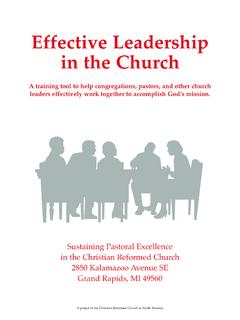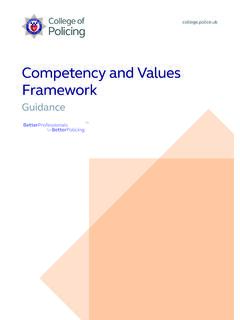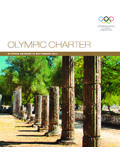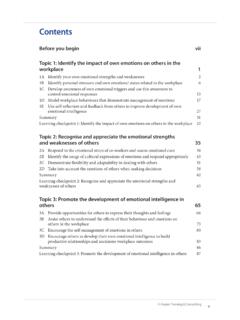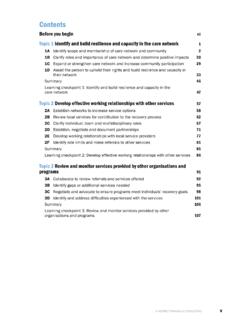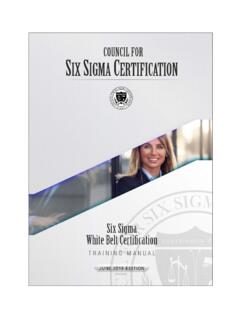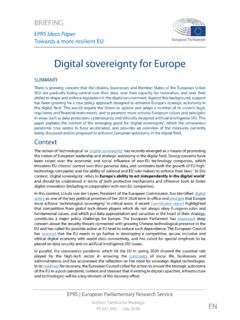Transcription of DOCUMENT RESUME ED 084 368 TITLE The Adult Learner: A ...
1 ED 084 368 AUTHORTITLEINSTITUTIONPUB DATENOTEAVAILABLE FROMEDRS PRICEDESCRIPTORSABSTRACTDOCUMENT RESUMECE 000 509 Knowles, MalcolmThe Adult Learner: A Neglected Society for Training and Development,Madison, Publishing Company, Box 2608, Houston, TX77001 ($ )MF-$ HC Not Available from EDRS.* Adult Education; * Adult Learning; Behavior Patterns;*Human Resources; Individual Development; LearningCharacteristics; Learning Experience; LearningMotivation; *Learning Theories; Manpower Development;Organizational Development; Teaching Models;*Teaching Techniques; TrainingTraditional theories of learning and the teachingpractices resulting from them are reviewed. Most theories of adultlearning are based on research into the learning of children, whichin turn is founded upon theories of animal learning.
2 These theories,formulated under laboratory conditions, are artificial at best--andnot complex enough to apply to Adult human beings. Emerging theoriesof Adult learning, however, are Lased on the unique characteristicsof adults as learners and result in differentiated educationalpractices. Human resource development (BED) is based on many of thesenewer theories and serves as a guideline for action. Knowles'andragogical theory is based on four assumptions which differ fromthose of pedagogy: (1) changes in self-concept,(2) the role ofexperience, (3) readiness to learn, and (4) orientation to a guideline for developing programs and for selecting andtrainingteachers, the andragogical model of HRD is very applicab?
3 E. Among theappendixes are "Is It Skinner or Nothing" and "An Approach to aDifferential Psychology of the Adult Potential." There is aeleven-page bibliography.(MS)the Adult )..co.,Learnerg ANeglected6pecie8U S DEPARTMENT OFHEALTHEDUCATION A WELFARENATIONAL INSTITUTE OFEDUCATIONTHIS DOCUMENT HASBEEN REPRODUCED EXAC LY AS RECEIVEDFROMTHE PERSON OR ORGANZATIONORIGINAliNC, IT POINTS OF VIEW OROPINIONSSTATED DO NOT NECESS '2 ILfREPRESENT ,FFICIAL NATIONALINST,TUTE OFEDUCATION POST ION OR POLICYPERMISSION TO REPRODUCE THISCOPYRIGHTED MATERIAL BY MICRO-FICHE ONLY HAS BEEN GRANTED spunTO ERIC AND ORGANIZATIONSOPERATING UNDER AGREEMENTS WITH THENATIONAL INSTITUTE OF EDUCATIONFURTHER REPRODUCTION OUTSIOETHE ERIC SYSTEM REQUIRESPERM'SSION OF THE COPYRIGHT OWNER "EMLF6the Adult )
4 Learnerg ANeglectedizSpeiecsMAIMMKNOVII6 Anyone involved in Adult training oreducation needs this readable, scholarlybook in his permanent Adult Learner: A Neglected Specieshelps cut through the bewildering andoften conflicting profusion of theoriesand research findings, interpretations,reinterpretations and an jses in thefield of learning out that most Adult learningtheory is based on the theories of child-learning, which in turn are based onresearch into the learning of animals, suggests that Adult humanbeings are a good deal more complexthan laboratory-bred white mice ormonkeys. He adds that the laboratorysituations are at best artificial even forthe this book he briefly reviews thetraditional theories about learning anddescribes the teaching practices intraditional schooling that have resultedfrom these goes on to describe ingreater detail the emerging theoriesabout Adult learning based on the u-nique characteristics of adults asContinued on hack flap( (milmied (min fmni flaplearners.)))
5 He then relates the differen-tiated educational practices that areflowing from these book provides experiencedtrainers and educators with soundtheory to support what they have knownall alongthat adults must betreateddifferently from the way children andyouth have traditionally been workers in the field willfindguidelines for developing programs andfor selecting and training teacherswhichwill result in greater cost/effectivenessintheir of the respected ASTDB uilding Blocks of Human Potentialseries edited by Dr. Leonard Nadler,Learning Theory breaks new ground andcoordinates the findings and often con-flicting conclusions of learningresearchers from conservative torevolutionary. This is a long-awaitedreference book for every educator ormanager, personnel director,humanresources developer, highschool orcollege instructor or ',hike, deigned b.
6 Herman WooGULF PUBLISHING COMPANYBox 2608 Houston, Texas 77001 Malcolm S. KnowlesProfessor of education and generalconsultant in Adult eaucation at BostonUniversity School of Education, MalcolmS. Knowles has written several booksand articles on Adult education, leadership and group dynamics. He hasprovided consultation and workshopleadership and direction for ovee 30companies, organizations,institutionsand schools. He has also contributed totwo television series on training ,,E1K,44[; ; The Adult Learner: A Neglected Specias-IIMIWIN,This series of books is supported by the American Society forittTraining and Development as part of its continuing program toencourage publication in the field. Most of theauthors are ac-tive in ASTD and have contributed to its growth over theyears.]
7 The Publications Committee of ASTDis a continuinglink between the editor and the publisher and the membershipj of DEPARTMENT Of HEALTH,EOUCATION A WELFARENATIONAL INSTITUTE OFEDUCATION*HIS DOCLAPE NT HAS BEEN REPROD,CE 0 EXACTLY LS RECEIVED PERSON OR ORGANIZATION T POiN,S 0,- VIEW OR OPINIONSTATE DO NOT NECESSARILY REPRESENT 011 CA_ NATIONAL INSTITUTE OFEDUCATION POSITION OR POLICYThe Adult Learner: A Neglected SpeciesMalcolm KnowlesGULF PUBLISHING COMPANYBook Publishing Division: HoustonThe Adult Learner: A Neglected SpeciesISBN 0-87201-005-8 Library of Congress Catalog Card No. 73-75391 Copyright ..g)1973 by Gulf Publishing Company, Houston, Texas. Allrights reserved. Printed in the United States of America.
8 This book, orparts thereof, may not be reproduced in any form without permission ofthe 'F-Rll-'-s ----.,contentsForeword by Leonard NadlerviiPrefaceixChapter 1. Exploring the Strange World of LearningTheory1 Why Explore Learning Theory?What Is a Theory?What is Learning?Chapter 2. Theories of Learning Based on Studies ofAnimals and Children12 Propounders and InterpretersTypes of TheoriesThe Concept of Mechanistic and Organismic Models ofDevelopmentTheories Based on a Mechanistic ModelTheories Based on an Organismic ModelChapter 3. Theories of Learning Based on Studies ofAdults29 Contributions from PsychotherapyContributions from Adult EducationAn Andragogical Theory of Adult LearningChapter 4. Theories of Teaching50 Principles from Theories of LearningConcepts of Teaching Derived from Theories of Learningof Animals and ChildrenConcepts of Teaching Derived from Theories of Learning of AdultsConcepts of Teaching Derived from Theories of TeachingCharacteristics of Effective TeachersChapter 5.
9 Applying Theories of Learning and Teachingto Human Resources Development92 Coping with the Different TheoriesAn Andragogical Model of HRDThe Evolving Meaning of Human Resources DevelopmentAppendix A. Is It Skinner or Nothing?124 Appendix B. Table of Behavioral Paradigms139 Appendix C. An Approach to a Differential Psychology0 the Adult Potential142 Appendix D. Toward a Model of Lifelong Education160 Appendix E. The Role of Training in OrganizationDevelopment165 Appendix F. Ways of Learning:Reactive versus Proactive173 Bibliography177 Index188vieditor'sforewordOver the past years, Malcolm Knowles has been constantlysought by human resource developers of all kindstraining direc-tors, consultants, community developersto help them un-derstand learning theories as applied to adults.
10 He has conductedsessions at many large national conferences, and the excitementamong his participants has usually spread to others. Therefore, itseemed only logical thatIshould ask him to write down histhoughts and bring together his various sources so they could beshared by a wider audience in a more permanent form. The result isthis concerned with any aspect of human resource develop-ment will find this book of inestimable value. HRD is based inlearning theories and now many of these theories have been broughttogether in one small volume. As Knowles has organized the book,you can proceed from his discussion into a search into any of thetheories in more depth. Few books have contrasted these theories aswell as Knowles has done in this the help of this book, HRD personnel can halt some of thefeverish search which develops when speakers drop names.










